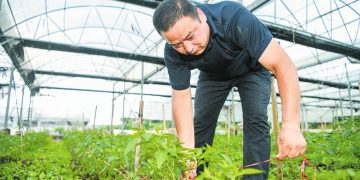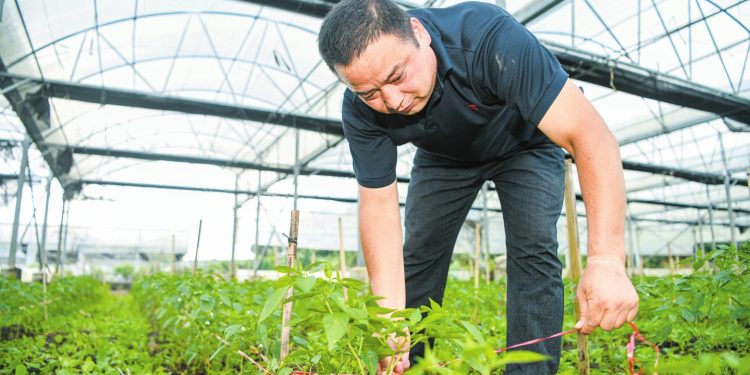#AgricultureWinter #CropFarming #SustainableAgriculture #VegetableCultivation #AgriculturalInnovation #CropRotation #HainanAgriculture #FarmingTechnology
In the heart of Hainan’s agricultural landscape, the Big Desert Vegetable Plantation is undertaking a significant initiative in winter crop farming. The recent report from Hainan Daily highlights the meticulous processes involved in the cultivation of winter melons, covering approximately 1700 acres of farmland. The diverse range of crops, including chili peppers, eggplants, green cucumbers, silk gourds, and the introduction of black-skinned winter melons, promises to bring a bounty of fresh produce to the market, enhancing the city’s vegetable supply.
Since October, the dedicated staff at the Big Desert Vegetable Plantation have been tirelessly overseeing every aspect of the winter melon cultivation. This includes daily tasks such as seedling management, fertilization, and irrigation. The goal is not only to ensure a successful harvest but also to contribute to the city’s vegetable basket, offering a variety of high-quality produce to the residents of Hainan.
The winter melon cultivation plan encompasses 600 acres of chili peppers, 400 acres of corn, and additional plots for seasonal vegetables like eggplants, green cucumbers, bitter gourds, and, for the first time, 100 acres dedicated to black-skinned winter melons.
The strategic planning of crop rotation has played a vital role in maintaining soil fertility and reducing the impact of pests and diseases. By alternating between rice and winter melon crops, the plantation has successfully rejuvenated the soil, resulting in healthier produce. As of now, 600 acres of winter melons have already been planted, with an optimistic outlook to complete the planting task by mid-December, weather permitting.
Inside the seedling greenhouse, rows of robust seedlings paint a picture of careful planning and expertise. All the melon crops are pre-cultivated in the plantation’s nurseries, with seedling work commencing in late October. The transplantation process is timed to ensure optimal growth conditions for the seedlings.
Adjacent greenhouses showcase a variety of leafy vegetables, emphasizing the plantation’s commitment to a sustainable and diverse farming approach. Chen Jianhua, the plantation’s supervisor, explains that the rotational cultivation of winter melons alongside everyday vegetables not only ensures a steady supply of daily greens but also contributes to soil improvement, enhancing fertility, and promoting efficient land utilization.
The ambitious project at the Big Desert Vegetable Plantation not only marks a significant stride in winter crop farming but also serves as a testament to the commitment to sustainable agriculture. By incorporating innovative farming practices, crop rotation, and careful planning, the plantation not only meets the immediate demands of the market but also contributes to the long-term health of the soil and environment.































